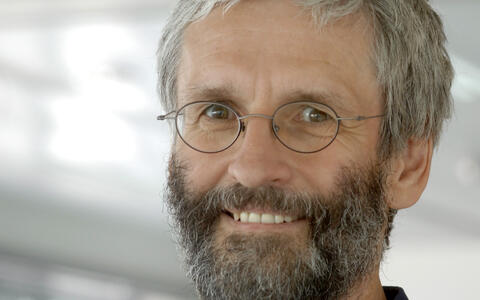ERC funding for two MDC scientists
Temperature is one of the most rigidly controlled aspects of life, as seen by the very narrow range maintained in the tissues of warm-blooded animals. Fevers and inflammations briefly turn up the heat during infections and immune responses. But there has been a major obstacle to exploring this dimension of life: scientists have not had a method to alter temperatures within living tissues.
That barrier should soon fall thanks to the efforts of physicist Thoralf Niendorf, a scientist at the Max Delbrück Center for Molecular Medicine in the Helmholtz Association (MDC) and the Charité – Universitätsmedizin Berlin. With support from an ERC Advanced Grant Niendorf aims to turn an unwanted side effect of medical imaging – the generation of heat – into a tool for researchers and doctors.
This will require focusing precise amounts of energy on microscopic targets inside animal bodies. To achieve this, Niendorf’s group will combine a new ultrahigh-field magnetic resonance imaging instrument with custom-designed arrays of radiofrequency transmitters. In a first step, they will establish whether healthy or diseased tissues have unique thermal properties. This could have diagnostic value. The next step will be to observe how pathological tissues such as tumors and their surroundings respond to highly focused heat, in hopes of developing temperature into a therapeutic tool. Finally, the group will test a new research tool: heat-sensitive “nano-vehicles” that bear inhibitors or drugs and remain inactive until a precise temperature is reached.
Second ERC Advanced Grant for Thomas J. Jentsch
Prof. Thomas J. Jentsch of the Leibniz-Institut für Molekulare Pharmakologie (FMP) and the MDC is one of the few scientists who have been awarded an ERC Advanced Grant for the second time. Jentsch is recognized as a world leader in research on ion channels. Such channels are present in the membranes of every cell and allow ions such as potassium and chloride to selectivly flow into a cell or leave it. In addition to identifying the genes and building blocks of such channels, his lab characterizes them biophysically and structurally and determines their functions in organisms. They are particularly interested in the roles channels play in physiology, pathology and various human diseases.
The new grant will be used to support two projects. First Jentsch will carry out follow-up studies on VRAC, an anion channel whose molecular composition was determined by his group just a few years ago. These channels play a crucial role in regulating cell volume; they also transport various signaling molecules and even clinically important drugs across membranes. VRAC is likely to make further contributions to health and disease; Jentsch and his colleagues will search for them by analyzing VRAC’s roles in signal transduction and the transport of molecules across various epithelia.
In the second project, Jentsch will try to pin down two other chloride channels whose physiological effects have been known for over ten years. Despite their importance, the proteins that comprise these channels remain unknown. Jentsch and his lab will carry out the search using a high-throughput approach that will check each of the more than 20,000 genes in the human genome. Jentsch says the approach, which was used to find VRAC, is high-risk / high gain. „Once the protein components are identified, we will finally be in a position to nail down their biological roles,“ says Jentsch. „This may lead to many unexpected discoveries.“
###
ERC Advanced Grants are awarded to established scientists in any field of research; the funding of up to 2,5 million Euros allows them to pursue a high risk project for five years. The funding program is one oft he most prestigous in Europe. Since 2009, MDC scientists have won 19 ERC grants, seven of them were Advanced Grants.
Image: David Ausserhofer/MDC
Image: David Ausserhofer/MDC
Contact
Vera Glaßer
Max Delbrück Center for Molecular Medicine (MDC) Berlin-Buch
Head of Communications department (interim)
Tel: +49 30 94 06 - 2120
presse@mdc-berlin.de
Further information







